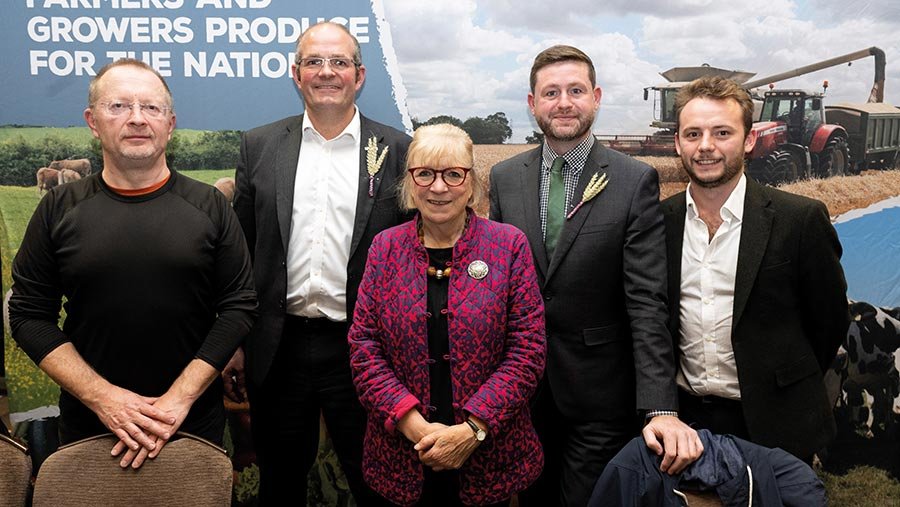Climate change is one of the biggest challenges facing the UK today.
The UK Government has set an ambition to be net zero by 2050, and many businesses and supply chains within the agriculture and food sector have committed to an even more ambitious goal of transitioning to net zero by 2040.
This means achieving an overall balance between reducing greenhouse gas emissions produced and increasing carbon dioxide removed from the atmosphere through sequestration.
Lloyds Bank and Promar International have been working together to develop a range of factsheets to help farmers and growers with their climate impact reduction plans.
Below is a summary of the key headlines and practical steps for each sector.
Dairy
Key emission challenges are reducing methane from digestion. This is produced as fibre is broken down by bacteria in the rumen.
Practical steps:
- Target improvement in feed efficiency by producing higher quality, homegrown feeds and increasing levels of carbohydrates in the diet.
- Optimising replacement numbers by maximising the genetic potential within the herd can achieve emission reduction through enhanced health traits, increased longevity, lower nitrogen excretion rates, and improving fertility.
Arable
Key emission challenges are reducing impacts from nitrous oxide which are generated from the cultivation of soils and the production and application of mineral nitrogen.
The degradation of arable soils needs to be addressed through improving soil structure, texture and increasing levels of organic matter.
Practical steps:
- Maintain ground cover using cover / catch crops in arable rotations.
- Adopt regenerative principles to minimise soil disturbance, maximise crop diversity, keeping the soil covered, maintaining a living root year-round and where appropriate, integrate livestock to build organic matter levels.
Horticulture
Priority areas include reducing energy and fuel use (from fossil fuels), reducing nitrogen use from field grown crops, tackling water scarcity and improving soils as 40% of UK vegetables are grown in areas of lowland peat.
Practical steps:
- Optimise nutrient availability to allow targeted application of organic and inorganic fertilisers.
- Reduce water demand by using precision irrigation and adopt drip irrigation which has a water use efficiency above 95%.
Livestock
The key challenge for beef and sheep farms is to reduce methane levels by focusing on breed, feed, genetics and management of manures.
Practical steps:
- Improving feed quality and selecting types of homegrown forage to optimise rumen performance and lower protein requirements.
- Adapting grazing strategies to rotational, high density grazing for short durations with longer grass recovery (i.e., mob grazing) has been shown to sequester and store carbon.
Poultry
The key challenges are addressing feed production, use and management which are responsible for 78% of total emissions within broiler units and 69% within layer production farms.
These emissions are largely due to land use change associated with sourcing certain proteins, particularly soya.
Practical steps:
- Reducing crude protein levels relevant to growth rate and age of the bird is an essential step. Reducing dietary protein by 2-5% can lead to a reduction of 60% in total nitrogen excretion.
- Identifying alternative methods of treatment for poultry litter such as applying additives or alum can reduce ammonia emissions by 20-30%.
Pigs
Feed and feed production are the main challenges and contribute up to 80% of emissions from pork.
Improving feed conversion efficiency, reducing direct emissions from slurry and manure management, and lowering energy requirement in equipment are all important focus areas.
Practical steps:
- Sourcing alternative feeds and reducing reliance on soya bean meal which is connected to deforestation is a critical action.
- Genetic planning can support reducing maintenance (feed) requirements as well as targeting improved growth rates.
Renewable Energy
Agriculture and horticultural businesses are energy and fuel intensive. Many farm businesses are considering investing in renewable energy but capital expenditure can be cost prohibitive and/or the farm has not properly quantified its energy consumption demands and requirements.
Practical steps:
- Appraise the energy, fuel and heat requirements of the farm and identify what the most intensive energy/fuel activities are and how they can be operated more efficiently.
- Consider incorporating solar photovoltaics into grazing systems or mounted onto buildings alongside battery storage technology.
Download the full factsheets for each of these sectors.












